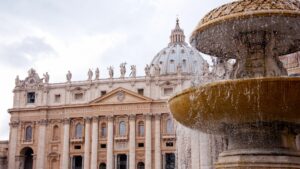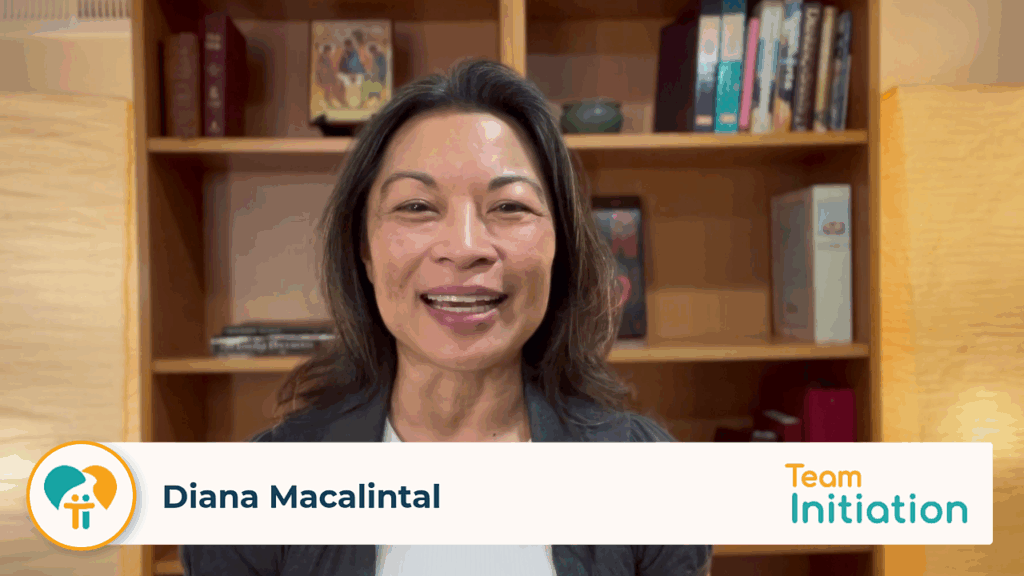
Pope Francis wants to know what your dreams are for the church of the future. Seriously. He wants to know what you, personally, have to say. He has put into motion all the energy of the Vatican and called upon the worldwide bishops to set up listening sessions to hear from the People of God.
I’m going to tell you how this works and how you can participate in a minute. But first, I have to encourage you to get past some churchy language. There is not a lot, but what there is may be a roadblock to some people. And it would be a tragic shame if we let a few unfamiliar phrases get in the way of what is a very important process that is about to unfold in our church.
The method by which Pope Francis is initiating this global conversation is a synod. And the topic of the synod is “synodality.”
What is a synod in the Catholic Church?
I feel your pain. I’m getting drowsy just writing the sentence. But hang on! “Synod” just means meeting or gathering. Pope Paul VI revised the official synod process after Vatican II into a series of meetings or gatherings of the bishops of the world to advise the pope on important matters.
Pope Francis is taking the meaning of synod back to its New Testament roots to say that it’s not just the bishops who are supposed to meet and discuss the matters of the church. The entire church should discuss what is important to the church. The official handbook for the synod says:
Indeed, synodality is not so much an event or a slogan as a style and a way of being by which the Church lives out her mission in the world. The mission of the Church requires the entire People of God to be on a journey together, with each member playing his or her crucial role, united with each other….
Pope Francis made this clear when he issued a direct invitation to all the People of God to contribute to Church efforts towards healing: “every one of the baptized should feel involved in the ecclesial and social change that we so greatly need. This change calls for a personal and communal conversion that makes us see things as the Lord does.”
Pope Francis is taking the meaning of synod back to its New Testament roots to say that it’s not just the bishops who are supposed to meet and discuss the matters of the church. The entire church should discuss what is important to the church.
Creating a new vision together
News reports and Vatican officials have been summarizing this gathering together of the People of God as a “synod on synodality.” I think a much clearer and more exciting way to describe what is about to happen is: “assembling the People of God to create a new vision for assembling the People of God.”
Or: “going on a journey of faith to talk about how we journey together in faith.”
Or: “dreaming together about the church of the future.”
That last one comes almost directly from the official handbook for the synod:
Synods are a time to dream and “spend time with the future”: We are encouraged to create a local process that inspires people, with no one excluded to create a vision of the future filled with the joy of the Gospel.
Who wouldn’t want to be a part of that? Sign me up.
It’s (almost) all about discernment
But it might not be that easy. Most press releases aren’t leading with the “create a vision of the future” bit. Most of the time, we are first hearing that there is a “synod on synodality” in the works, and then most people tune out right there. And by “people” I mean bishops and diocesan staff. The handbook I keep referring to (which has another official snooze-inducing name: “vademecum.” Ugh!) is meant as a guide for dioceses to implement gatherings at the local level. Some dioceses will be excited about this opportunity and run with it. And many others will file it on the shelf of good ideas to get to someday.
Pope Francis, however, having been an actual diocesan bishop, is providing an alternative. If your diocese is not yet gearing up for the worldwide “dreaming together about the church of the future,” you can gather as a catechumenate community and do your own dreaming. In fact, much of what is in the official handbook for “dreaming together about the church of the future” is all about discernment, which is right up our alley.
Much of what is in the official handbook for “dreaming together about the church of the future” is all about discernment, which is right up our alley.
What should an RCIA team keep in mind during this process?
Over the next several posts, I’m going to discuss how you, as an RCIA team and a band of seekers, can be part of discerning the future of the church. As we go through these steps together, however, there is one very important thing to keep in mind.
The future of the church won’t be decided by the pope or the Vatican or by your diocesan office. The future of the church is a gift of the Holy Spirit. Is isn’t our job (nor the pope’s, nor the Vatican’s, nor the diocese’s) to chart the course. It is our job to listen and discern where the Spirit is leading us.
This, too, comes from the official handbook in a section that lists possible pitfalls:
The temptation of wanting to lead ourselves instead of being led by God. Synodality is not a corporate strategic exercise. Rather it is a spiritual process that is led by the Holy Spirit. We can be tempted to forget that we are pilgrims and servants on the path marked out for us by God. Our humble efforts of organization and coordination are at the service of God who guides us on our way. We are clay in the hands of the divine Potter (Isaiah 64:8).
Pope Francis wants to know what your dreams are for the church of the future. But more than that, your catechumenate community wants to know. We should all plan on giving some serious time to listening to each other and discovering the exciting path marked out for us by God.
More to come. But if you want to get a jump on the process, you can find the official handbook for the synod and the accompanying preparation guide here:
Your turn
What are you dreaming about for the future of the church? How are you seeing God lead this process? What does this mean for your RCIA team? Share your thoughts in the comments below.

















I’m really struck by how the RCIA’s use of the language of journey (and its constant emphasis on the dynamic role of the community of faith) harmonizes with this initiative on synodality.
We are a pilgrim people. This requires skills of walking together. Many people do not realize this.
Me too! I think there is so much about this process that resonates with the catechumenate process. The RCIA dives right into the journey imagery in paragraph 1:
In the coming revision, my understanding is that “way” will be changed to “journey” as a more literal translation of the Latin original. I pray this synod has a real impact on the church so that we begin to see ourselves on a lifelong journey of faith.
Thanks Rita!
Excellent. I’m also reminded of the language in Ad Gentes 13:
“(N)ew converts set out on a spiritual journey, by means of which, already sharing through faith in the mystery of Christ’s Death and Resurrection, (they pass) from the old (people) to the new (people), perfected in Christ (cf. Col. 3:5-10; Eph. 4:20-24). This bringing with it a progressive change of outlook and morals, must become evident with its social consequences, and must be gradually developed during the time of the catechumenate. Since the Lord (she or) he believes in is a sign of contradiction (cf. Luke 2:34; Matt. 10:34-39), the convert often experiences an abrupt breaking off of human ties, but (she or) he also tastes the joy which God gives without measure (cf. 1 Thess. 1:6).”
Even in the mid-60s there was a notion that conversion was far more than an intellectual task. The Council bishops realized some things were part of the journey of faith, even progress and rupture. (ack!) When I think of my own experiences when on pilgrimage (a term I like even better than journey) I remember being surprised at turns in the road (literally and otherwise). Walking or driving can be monotonous, but then one experiences a new vista, a lovely destination or rest stop, or a thought or insight arising from introspection. One meets new people: other pilgrims, porters, innkeepers, etc.. That abrupt “breaking off of human ties” struck me today for the first time that the possible experience of many catechumens and candidates involves whole new circles of friends. The synod gives us that opportunity. Also the recognition this is another part of the journey for us to assist our new friends.
Thanks for your thoughtful comments, Todd!